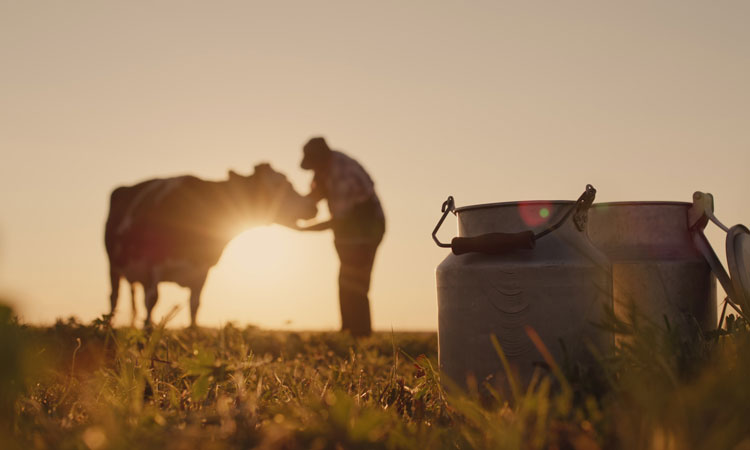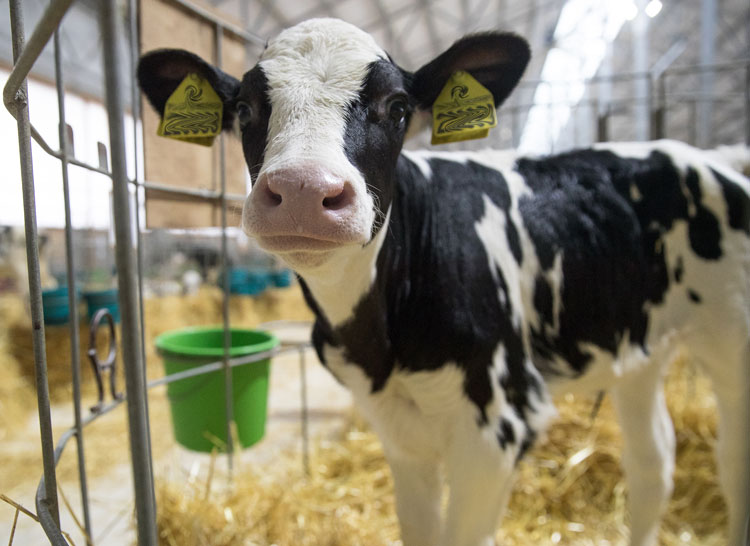Cows benefit from human contact, study finds
Posted: 22 February 2023 | New Food | No comments yet
Researchers in Florida, US observed that just five minutes of human connection with dairy calves has a positive effect on their behaviour.


Dairy farmers are aware of the importance of calves’ welfare and contentment, particularly during the weaning stage. Previous investigations have shown a propensity for cows to seek out human interaction, but the results of such contact have thus far been unknown.
In a recent study, researchers from the University of Florida sought to identify precisely how human company influences calves’ levels of wellbeing by observing their behaviour under controlled conditions.
Lead investigator Emily K Miller-Cushon, PhD from the University of Florida Department of Animal Sciences explained that identifying cows’ moods and feelings is achieved through observing their actions. Abnormal behaviours can include “sucking or chewing on their housing pens or bedding, on their pen-mates or human handlers – all of which are common in the period after calves are fed,” she revealed.
“Calves are active and seek stimulation following milk-feeding, so providing more things to do, like brushing, may calm calves, reducing sucking behaviours after feeding and increasing rest,” said Miller-Cushon.
In an effort to see whether human contact impacts cows’ tendency to demonstrate these abnormal behaviours, the team randomly assigned 28 Holstein heifer calves to either individual or paired housing conditions from birth to seven weeks old. The researchers standardised their contact with humans over this period to include feeding and health exams. The calves began weaning at six weeks old. Over a four-day period during weaning, the researchers introduced additional human contact and recorded their behaviour by video on a continuous basis.


Benefits were particularly pronounced in those calves that were housed alone
During this study period, each calf received two days of their normal amount of human contact and two experimental days, in which they received an extra five minutes of neck scratches with their familiar human handlers. Cows are known to enjoy neck scratching and coat brushing; “calves lean into the scratches and stretch our their necks for more,” revealed Miller-Cushon. “We also see that calves suck on the pen less when they have a stationary brush that they can rub against.”
Following analysis of the video footage, the research team claimed that human contact does indeed impact the behaviour of the animals, as the additional five minutes spent with humans reduced the duration of calves’ sucking behaviours and increased the amount of time they rested after meals.
This effect was particularly pronounced in those calves housed alone, which suggests that socialising is important not just with humans but also with other calves.
These impacts on behaviour promote calm and increased wellbeing; although Miller-Cushon was careful to note that the human contact did not entirely eliminate the sucking behaviours: “Our findings showed benefits of human contact, but the results also suggest that our work is not done in finding the most beneficial and natural methods of feeding and housing our dairy calves.”









